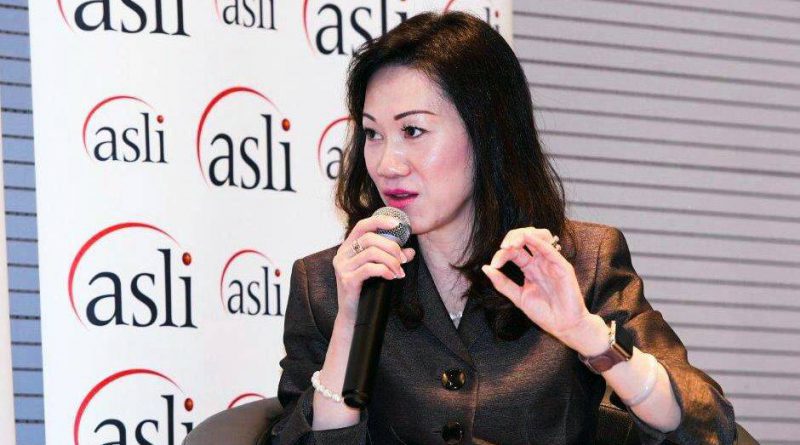Asli: Belt and Road welcome, but implementation must not be one-sided
KUALA LUMPUR: The Belt and Road Initiative (BRI) is an example of the best of China’s grand vision for its neighbours and a projection of its peaceful development, says the Asia Strategy and Leadership Institute (Asli).
Its chief executive officer Melissa Ong said the BRI resonated with Malaysia’s own vision of shared prosperity at the regional and global level, especially its espousal of “prosper-your-neighbour” approach in bilateral and multilateral relations.
“There is this talk about a so-called ‘debt trap diplomacy’, although I’m keen to emphasise we do not buy into this idea.
“Debt trap implies that China purposely sets a trap for its unsuspecting partner country in order to ensure total and permanent dependency.
“The partner country in debt to China would then become a vassal state – a colony, if you like, and completely beholden to the strategic interests of China.
“Our Prime Minister Tun Dr Mahathir Mohamad was, at one time, one of the most vocal critics among those whose countries had signed up for China’s multibillion-dollar infrastructure drive, warning of ‘new colonialism’ and debt-trap diplomacy.
“However, today he is a supporter of the BRI, although Dr Mahathir did still voice concerns about the initiative especially pertaining to the freedom of navigation along the initiative’s trade routes near the South China Sea, where tensions have risen with Chinese and American activity, ” she said at the China-Malaysia Think Tanks and Media Dialogue on Monday (July 29).
The forum was hosted by the China Public Diplomacy Association, Embassy of People’s Republic of China in Malaysia and Ministry of International Trade and Industry of Malaysia.
Ong said regarding BRI, as far as Malaysia was concerned, “we strongly believe that as long as both sides are committed to ensuring that the values of integrity, transparency, accountability, fair play, mutual respect, honesty and good faith, the BRI will be mutually beneficial”.
“As you all are aware, here in Malaysia, we are moving away from the mistakes of the previous administration.
“Malaysia is not against BRI. We are only concerned that in its actual implementation on the ground, BRI should not become one-sided.
Under the previous administration, the perception on the ground and in the eyes of the public at large was that there were hidden costs that would turn out to be a burden to Malaysia in the long-run.
“We were worried that there would be costs overrun – beyond reasonable expectations, thus impinging on the issue of financial sustainability.
“I ask that the perspective presented here be considered as a sounding board to our Chinese partners and counterparts – whether at the governmental or non-governmental level.
“It is meant to be a positive and constructive feedback, if you will, that is reflective of the attitude and sentiment of many in Malaysia, ” she said.
Ong said the miscalculation of the previous administration, including on the costs involved in the East Coast Rail Link or ECRL, was one of the reasons for the disappointment of the people.
“Thankfully, the ERCL has been successfully renegotiated in good faith and efficiently – such that now, both sides are exploring spill-over potential along the ERCL Corridor.
“This would reinforce the financial sustainability and long-term viability of the project, ” she said.
Source: TheStar



